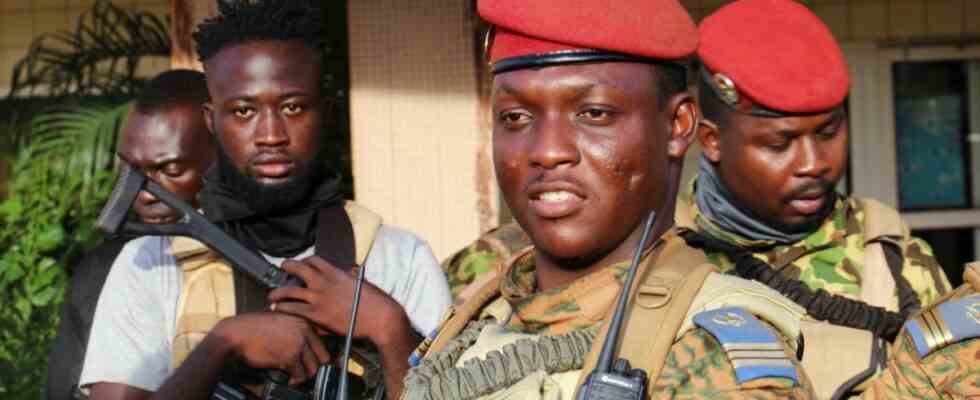If there were a competition to choose the world’s least known leader, Ibrahim Traoré would have a good chance. He was previously a captain in the Burkina Faso army, not a particularly high rank, which in the Bundeswehr also corresponds to that of a staff veterinarian. Traoré has been fighting with the army on the front line against the spreading Islamist terror for several years, but even in the capital Ouagadougou hardly anyone knew the 34-year-old until a week ago.
On Friday, Captain Traoré seized power in the West African country of around 22 million people. He and his comrades-in-arms proceeded in a very classical way; the television station was manned, along with the important crossings, apparently it didn’t take much. It is the tenth military coup since the country gained independence in 1960, along with four attempts and a popular uprising. The Traoré coup is also a coup within a coup, since his predecessor Paul-Henri Damiba only came to power in an identical manner in January.
When the first shots were heard on Friday and state television suddenly broadcast timeless documentaries, Damiba dismissed the impending disaster as “changes in mood within the military”. A few days later he was already in exile in Togo.
In the capital, a few hundred, possibly thousands of people welcomed the new ruler, who has apparently been calling himself the interim president so far. The manageable enthusiasm for a hitherto completely unknown captain is probably above all an expression of disappointment at the work of the deposed putschist Damiba. He had promised to improve the security situation in the country. For years, Burkina Faso has been suffering from the spread of Islamist terror, which is spilling over from neighboring Mali in particular. Around two million people have fled and several thousand have died. Shortly before the coup, 27 soldiers were said to have been killed in an attack by an al-Qaeda affiliate.
Demonstrators wave Russian flags
Traoré, it is now said, is known for his bravery at the front. “All that matters is that the security situation improves,” he said a few days after the coup, but otherwise had no concrete concept to offer. His predecessor had already declared the fight against terror to be his top priority. But he has made little progress. The deposed Damiba had served at the front for years himself, and over that time quite a written a sobering book, which gave little hope that the war on terror can be won. He wrote that focusing on military means would at best treat symptoms, but often add fuel to the fire.
What his successor wants to do differently remains unclear. One can assume that the willingness of international partners to get involved in Burkina Faso has not exactly increased as a result of the second putsch within a year. In the first days of the coup, Traoré deliberately targeted the anti-French mood among the population, who blamed the former colonial power for the country’s desolate situation. Traoré initially claimed that his predecessor was in a French barracks and was planning his return with the help of Paris.
Some demonstrators then set fire to the French embassy. Some of them waved Russian flags and called for Russian involvement. Just like in neighboring Mali, where France has withdrawn and the military regime relies on the mercenaries of the Wagner troops to fight the Islamists. However, the latter announced on Tuesday that it would not hire any more recruits for operations in Africa for the time being, in order to concentrate entirely on the war against Ukraine. Perhaps that’s why Traoré has once again sent out friendly tones to France and promised to switch to a civilian government within two years.
What he intends to do until then remains unclear. He even told the French international radio station RFI: “We have no specific goal.” His predecessor Damiba was therefore perhaps not so wrong when he spoke of “mood swings” in the army. It is said that some soldiers who are fighting the terrorists at the front have not been paid for a long time. On Sunday, Traoré, dressed in military clothes, held a meeting with ministry officials, which was broadcast on the internet. He was asked whether the schools will be able to open again soon. Ultimately, he couldn’t answer the question.

